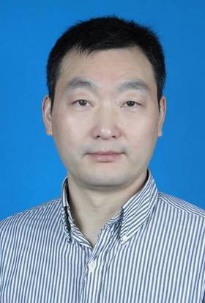
一、基本信息
陈明周,博士,二级教授,博士生导师,九游会老哥俱乐部院长
电子邮件:chenmz(at)hubu.edu.cn
研究领域:医学病毒学、分子病毒学、新型疫苗及抗病毒药物
研究方向:
团队长期的研究方向是解析病毒感染和致病的分子机制,主要针对重要的人类和动物病毒(寨卡病毒、人副流感病毒、呼吸道合胞病毒、肠道病毒71、新冠病毒、乙肝病毒、埃博拉病毒和尼帕病毒等)的感染、复制与致病机制研究;解析病毒的感染过程及在宿主细胞内的复制、组装、释放及病毒与宿主细胞的相互机制;探究病毒调控机体脂类代谢的分子机制;发现、鉴定关键的抗病毒靶点及抗病毒小分子药物筛选;基于纳米颗粒平台的新型病毒疫苗研发。
二、教育背景
1996.09-2002.07 华中农业大学,微生物学,博士学位
1992.09-1996.06 华中农业大学,本科,学士学位
三、工作经历
2023.8至今 九游会老哥俱乐部,教授,博士生导师
2019-2023 武汉大学九游会老哥俱乐部,副院长
2018-2019 武汉大学九游会老哥俱乐部,院长助理
2017-2023 武汉大学病毒学国家重点实验室,副主任
2009-2023 武汉大学九游会老哥俱乐部/病毒学国家重点实验室,教授
2005-2009 美国克利夫兰临床医院,分子遗传学系,博士后
2002-2005 法国里昂第一大学感染与免疫学系,博士后
四、科研项目
1. 国家自然科学基金重点项目“人副流感病毒3型复制细胞器生物合成及功能发挥的分子机制”(82130064),2022.01-2026.12,290万,主持
2. 国家重点研发计划“病原学与防疫技术体系研究”专项“病毒复制与宿主相互作用研究及药物靶点发现”(2021YFC2300702), 2021.12-2024.11,687万,主持
3. 国家杰出青年科学基金项目“RNA病毒感染和致病的分子机制”(81825015),2019.01-2023.12,400万,主持
4. 国家自然科学基金重点项目“人副流感病毒诱导的线粒体自噬及其调控先天免疫和病毒 复制的机制”(31630086)2017.01-2021.12,287万,主持
5. 湖北省重点研发计划“靶向宿主囊泡运输途径关键调节因子RAB11的广谱型抗呼吸道病毒多肽研发”(2023BCB087),2023.01-2025.12,100万,主持
6. 国家自然科学基金面上项目“人副流感病毒3型核衣壳蛋白的功能研究”(81471939)2015.01-2018.12,100万,主持
7. 国家自然科学基金面上项目“水泡性口炎病毒磷酸蛋白氨基端磷酸化的功能研究”(81271816),2013-2016,70万,主持
8. 国家重点研发计划重点专项(2017YFA0505800)2017-2022,130万,参与
9. 国家科技重大专项“艾滋病和病毒性肝炎等重大传染病防治”(2018ZX10101004) 2018-2020,114万,参与
10. 教育部新世纪优秀人才支持计划 2014-2016,50万,主持
11. 湖北省自然科学基金创新群体(2017CFA022)2017-2019,50万,主持
12. 湖北省杰出青年基金 2014-2016,10万,主持
五、代表性成果(* 通讯作者)
1. Liu P, Zhang S, Ma J, Jin D, Qin Y*, Chen M*. Vimentin inhibits α-tubulin acetylation via enhancing α-TAT1 degradation to suppress the replication of human parainfluenza virus type 3. PLoS Pathog. 2022. 18(9): e1010856. https://doi.org/ 10.1371/journal.ppat.1010856
2. Guo D, Yu X, Wang D, Li Z, Zhou Y, Xu G, Yuan B, Qin Y*, Chen M*. SLC35B2 acts as a dual role in the host sulfation required for EV71 infection. Journal of Virology. 2022 May 11;96(9): e0204221.doi: 10.1128/jvi.02042-21.
3. Fan S, Xu Z, Liu P, Qin Y*, Chen M*. Enterovirus 71 2A protease inhibits P-Body formation to promote viral RNA synthesis J Virol. 2021 Sep 9; 95(19): e0092221.
4. Zhang L, Zhou S, Chen M, Yan J, Yang Y, Wu L, Jin D, Yin L, Chen M*, Qin Y*. P300-mediated NEDD4 acetylation drives ebolavirus VP40 egress by enhancing NEDD4 ligase activity. PLoS Pathogens. 2021 Jun 10;17(6): e1009616. doi: 10.1371/journal.ppat.1009616. eCollection 2021 Jun.
5. Hui X#, Zhang L#, Cao L, Huang K, Zhao Y, Zhang Y, Chen X, Lin X*, Chen M*, Jin M*. SARS-CoV-2 promote autophagy to suppress type I interferon response. Signal Transduct Target Ther. 2021 May 8;6(1):180. doi: 10.1038/s41392-021-00574-8.
6. Cheng Q, Huai W, Wu X, Chen M*. Sumoylation of Human Parainfluenza Virus Type 3 Phosphoprotein 2 Correlates with a Reduction in Viral Replication. Virol Sin. 2020. Online.
7. Wu L, Jin D, Wang D, Jing X, Gong P, Qin Y*, Chen M*. The two-stage interaction of Ebola virus VP40 with nucleoprotein results in a switch from viral RNA synthesis to virion assembly/budding. Protein Cell. 2022 2022 Feb;13(2):120-140. doi: 10.1007/s13238-020-00764-0.
8. Li Z, Guo D, Qin Y*, Chen M*. PI4KB on inclusion bodies formed by ER membrane remodeling facilitates replication of human parainfluenza virus type 3. Cell Reports. 2019. 29(8):2229-2242.
9. Zhang Q#, Sharma N#, Zheng Z*, Chen M*. Viral Regulation of RNA Granules in Infected Cells. Virol Sin. 2019 Apr;34(2):175-191.
10. Tang Q, Liu P, Chen M*, Qin Y*. 2019. Virion-Associated Cholesterol Regulates the Infection of Human Parainfluenza Virus Type 3. Viruses. May 15;11(5).
11. Yang X, Hu Z, Zhang Q, Fan S, Zhong Y, Guo D, Qin Y, Chen M*. 2019. SG formation relies on eIF4GI-G3BP interaction which is targeted by picornavirus stress antagonists. Cell Discov. eCollection.
12. Zhang L, Qin Y, Chen M*. 2018. Viral strategies for triggering and manipulating mitophagy. Autophagy. 14(10):1665-1673.
13. Zhang S#, Cheng Q#, Luo C, Qin Y*, Chen M*. 2018. Human Parainfluenza Virus Type 3 Matrix Protein Reduces Viral RNA Synthesis of HPIV3 by Regulating Inclusion Body Formation. Viruses. 11;10(3).
14. Hu Z, Wang Y, Tang Q, Yang X, Qin Y, Chen M*. 2018. Inclusion bodies of human parainfluenza virus type 3 inhibit antiviral stress granule formation by shielding viral RNAs. PLoS Pathog 14(3): e1006948.
15. Yang X, Hu Z, Fan S, Zhang Q, Zhong Y, Guo D, Qin Y, Chen M*. 2018 Picornavirus 2A protease regulates stress granule formation to facilitate viral translation. PLoS Pathog 14(2): e1006901. https://doi.org/10.1371/journal.ppat.1006901.
16. Zhang S#, Cheng Q#, Luo C, Yin L, Qin Y*, Chen M*. 2018. An alanine residue in human parainfluenza virus type 3 phosphoprotein is critical for restricting excessive N0-P interaction and maintaining N solubility. Virology. 518:64-76.
17. Ding B#, Zhang L#, Li Z, Zhong Y, Tang Q, Qin Y, Chen M*. 2017. The Matrix Protein of Human Parainfluenza Virus Type 3 Induces Mitophagy that Suppresses Interferon Responses. Cell Host & Microbe. 21(4):538-547.
18. Zhang S#, Jiang Y#, Cheng Q, Zhong Y, Qin Y, Chen M*. 2017. Inclusion body fusion of human parainfluenza virus type 3 regulated by acetylated α-tubulin enhances viral replication. Journal of Virology. 91(3). pii: e01802-16.
19. Jiang Y, Qin Y*, Chen M*. 2016. Host-Pathogen Interactions in Measles Virus Replication and Anti-Viral Immunity. Viruses, 8 (11), E308 (Invited review).
20. Yan Q#, Wu L#, Chen L, Qin Y*, Pan Z*, Chen M*. 2016. Vesicular stomatitis virus-based vaccines expressing EV71 virus-like particles elicit strong immune responses and protect newborn mice from lethal challenges. Vaccine. 34:4196-4204.
21. Zhang G#, Zhong Y#, Qin Y, Chen M*. 2015. Interaction of Human Parainfluenza Virus Type 3 Nucleoprotein with Matrix Protein Mediates Internal Viral Protein Assembly. Journal of Virology. 90(5):2306-15.
22. Ding B, Qin Y, Chen M*. 2016. Nucleocapsid proteins: roles beyond viral RNA packaging. WIREs RNA. 7(2):213-26. (Invited review).
23. Chen L, Zhong Y, Hu Z, Qin Y. Chen M. Chen M*. 2016. Two second-site mutations compensate the engineered mutation of R7A in vesicular stomatitis virus nucleocapsid protein. Virus Research, 214:59-64.
24. Chen L#, Yan Q#, Lu G, Hu Z, Zhang G, Zhang S, Ding B, Jiang Y, Zhong Y, Gong P, Chen M*. 2015. Several residues within the N-terminal arm of vesicular stomatitis virus nucleoprotein play a critical role in protecting viral RNA from nuclease digestion. Virology.478:9-17.
25. Ding B, Zhang G, Yang X, Zhang S, Chen L, Yan Q, Xu M, Banerjee AK, Chen M*. 2014. Phosphoprotein of human parainfluenza virus type 3 blocks autophagosome-lysosome fusion to increase virus production. Cell Host & Microbe.15(5):564-77.
26. Zhang G, Zhang S, Ding B, Yang X, Chen L, Yan Q, Jiang Y, Zhong Y, Chen M*. 2014. A Leucine Residue in C-terminus of Human Parainfluenza Virus Type 3 Matrix Protein Is Essential for Efficient Virus-Like Particle and Virion Release. Journal of Virology. 88(22):13173-88.
27. Zhang S, Chen L, Zhang G, Yan Q, Yang X, Ding B, Tang Q, Sun S, Hu Z, Chen M*. 2013. An amino acid of human parainfluenza virus type 3 nucleoprotein is critical for template function and cytoplasmic inclusion body formation. Journal of Virology. 87(22):12457-70.
28. Chen L, Zhang S, Banerjee AK and Chen M*. 2013. N-Terminal Phosphorylation of Phosphoprotein of Vesicular Stomatitis Virus Is Required for Preventing Nucleoprotein from Binding to Cellular RNAs and for Functional Template Formation. Journal of Virology. 87(6):3177-86.
29. Chen M, Ogino T, Banerjee AK*. 2007. Interaction of vesicular stomatitis virus P and N proteins: Identification of two overlapping domains at the N-terminus of P that are involved in N0-P complex formation and encapsidation of viral genome RNA. Journal of Virology. 81(24):13478-85.
30. Chen M, Ogino T, Banerjee AK*. 2006. Mapping and functional role of the self-association domain of vesicular stomatitis virus phosphoprotein. Journal of Virology. 80(19): 9511-8.
31. Chen M and Gerlier D*. 2006.Viral Hijacking of Cellular Ubiquitination Pathways as an Anti-Innate Immunity Strategy. Viral Immunology. 19(3): 349-362.
32. Chen M, Cortay JC, Logan IR, Sapountzi V, Robson CN, Gerlier D*. 2005. Inhibition of ubiquitination and stabilization of human ubiquitin E3 ligase PIRH2 by measles virus phosphoprotein. Journal of Virology. 79(18): 11824-36.




